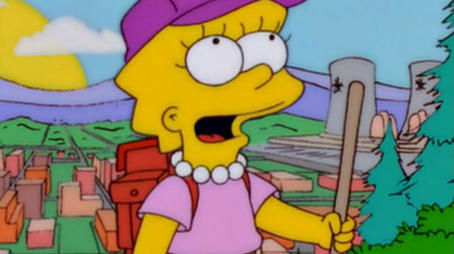
Sorry, we have not watched this yet.

Lisa falls for the teenaged leader of a militant environmentalist group and tries to impress him by living in Springfield's oldest tree in order to keep it from being cut down.
Sorry, we have not watched this yet.